The Excellence Strategy of the German federal and state governments has the aim of strengthening Germany as a centre for science and research in the long term and further improving its international competitiveness. It thus continues the development and strengthening of German universities already begun with the Excellence Initiative of the German federal and state governments. The programme is implemented jointly by the German Research Foundation (DFG) and the German Science and Humanities Council (WR).
The programme includes the two funding lines Clusters of Excellence and Universities of Excellence and is designed to run for an indefinite period. Further information is available on the websites of the German Research Foundation (DFG) and the German Science and Humanities Council (WR).
In the ongoing first round of the Excellence Strategy, the University of Freiburg received approval in the first funding line for the Clusters of Excellence ‘CIBSS – Centre for Integrative Biological Signalling Studies’ and ‘livMatS – Living, Adaptive and Energy-autonomous Materials Systems’. These two Clusters of Excellence took up their work on 1 January 2019.
Draft proposals in the Clusters of Excellence funding line of the Excellence Strategy
Two University of Freiburg cluster initiatives have taken an important step forward in the current round of the Excellence Strategy of the federal and state governments. The German Research Foundation has invited the Freiburg cluster initiatives Constitution as Practice in Times of Transformation (ConTrans) and Future Forests – Adapting Complex Social-Ecological Forest Systems to Global Change to submit full proposals by 22 August 2024. This milestone was preceded by a collaborative process involving the University leadership and more than 200 researchers: The University’s participation in the current round of the Excellence Strategy of the federal and state governments has been in preparation since February 2021, embedded in the overall strategic process ‘University of Freiburg 2030’.
The existing University of Freiburg Clusters of Excellence, Centre for Integrative Biological Signalling Studies (CIBSS) and Living, Adaptive, and Energy-Autonomous Materials Systems (livMatS), will submit proposals for a second term of funding.
The following Cluster of Excellence initiatives will submit full proposals:
Initial concepts for possible Cluster of Excellence initiatives were reviewed last year. As a result, the university leadership asked seven initiatives to further develop their concepts in July 2022. All seven of these initiatives have now submitted draft proposals.
The university will submit renewal proposals for the two existing Clusters of Excellence, Centre for Integrative Biological Signalling Studies (CIBSS) and Living, Adaptive and Energy-autonomous Materials Systems (livMatS), in summer 2024.
As a whole, the seven Cluster of Excellence initiatives and the two Clusters of Excellence already receiving funding are a clear reflection of the university’s research profile and proven research strengths: All eleven faculties are participating in the highly interdisciplinary proposals.
Modern constitutions are at the centre of sociopolitical hopes and conflicts. Often understood as foundational documents of modern nation-states, they are associated with permanence and stability. However, the limits of the modern conception of constitutions become apparent when it comes to understanding the basic orders of societies and communities across space and time. Constitutions are based on social practices, making them a factor in the process of adaptation of social orders. This dimension becomes especially prominent in times of economic, social, and political change and crisis but has so far been neglected. This implies the need for a consistently interdisciplinary approach.
To this end, ConTrans brings perspectives from different disciplines together for the first time – from law and history to literary studies and psychology – in a comprehensive and sustained endeavour to investigate constitutions as social practices. Only in this way is it possible to comprehend variations of constitutionality across space and time. They range from symbols, rituals, and procedures to the discursive function of ‘ancient constitutions’ in modern debates. This requires an innovative analytical framework to explore communicative and institutional practices of different actors.
The goal of the participating researchers is to establish an international and interdisciplinary constitutional research programme in the humanities and social sciences through ConTrans and to give it concrete form in a Freiburg Centre for Interdisciplinary Constitutional Studies (FreiCIC).
Participating faculties (in alphabetical order): Faculty of Economics and Behavioural Sciences, Faculty of Humanities, Faculty of Law, Faculty of Philology, Faculty of Theology
Spokespersons: Prof. Dr. Matthias Jestaedt, Prof. Dr. Jörn Leonhard, Prof. Dr. Sitta von Reden

Prof. Dr. Matthias Jestaedt is Professor of Public Law and Legal Theory at the Institute of Political Science and Philosophy of Law, where he serves as director of the Department of Legal Theory at the Faculty of Law. He is also an international correspondent of the Hans Kelsen Institute in Vienna, as well as a member of its board of directors since 2012. He is head of the Hans-Kelsen-Forschungsstelle. He has been a member of the Academy of Sciences and Literature since 2014. His research foci are constitutional law and constitutional comparison, European human rights protection, state-church law, legal theory and theory of legal science, child and youth welfare law, and Hans Kelsen. He is a member of the ‘GE Commission to Address Sexual Abuse in the Archdiocese of Freiburg’.
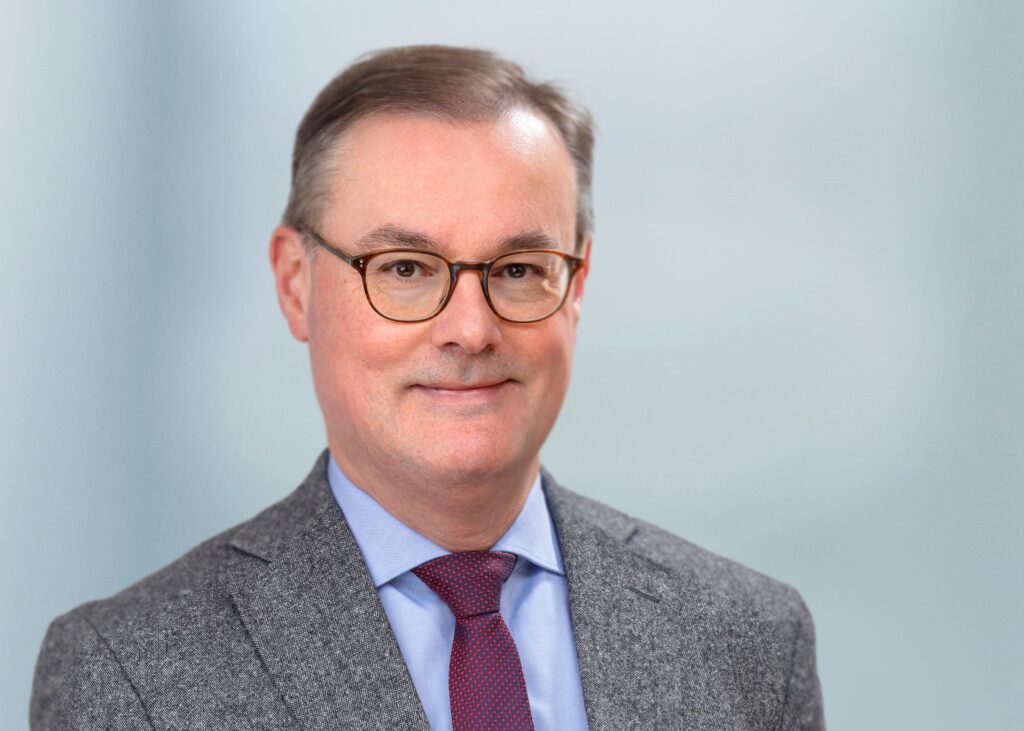
Prof. Dr. Jörn Leonhard is Professor of Modern and Contemporary Western European History at the Department of History, Faculty of Humanities. He was the founding director of the School of History at the Freiburg Institute of Advanced Studies (FRIAS). His work has been recognized with the Baden-Württemberg State Research Prize, among others. His research focuses on comparative European and global history of the 19th and 20th centuries, particularly in relation to the topics war and peace, violence and politics, and empires and nation-states. He is a full member of the Heidelberg Academy of Sciences and Humanities, an honorary fellow at the University of Oxford’s Wadham College, and a member of the academic advisory boards of the House of History Baden-Württemberg in Stuttgart and the German Historical Institute London. He is currently directing the research project ‘The World Crisis, 1918–1941’, funded by the Volkswagen Foundation’s Opus Magnum Programme.
Prof. Dr. Sitta von Reden is Professor of Ancient History at the Department of History. She also teaches at the University College Freiburg and in the Interdisciplinary Anthropology master’s programme. She is principal investigator of the project ‘Beyond the Silk Road’, funded by the European Research Council with an ERC Advanced Grant. Her research foci include Greek history, ancient economic and global history, Hellenistic Egypt, and the political culture of Greece and Athens, as well as comparative history of ancient empires.
Forests cover approximately 30 per cent of the global landmass and render numerous essential ecosystem services (ES): They provide renewable resources, mitigate the impact of climate change, support human health, and preserve biodiversity. In the face of rapid climate change, novel ecosystem disturbances, and the introduction or loss of species, large expanses of forests are evolving towards novel ecosystems that are unprecedented in evolutionary history. It is highly uncertain to what extent these novel ecosystems will be capable of rendering the desired ES and preserving biodiversity. The changes will occur so quickly that natural adaptation processes will not be able to keep pace with them.
Parallel to this development, major societal changes are to be expected, resulting from processes such as urbanization, globalization and trade, land use, and changing demands regarding nature’s services to humans. The natural and social spheres are closely interlinked, interact in a complex way, and thus present unexpected risks. With a better understanding of these system dynamics, it will be possible to devise strategies to prevent undesirable developments. The researchers of Future Forests thus aim to make novel contributions to conceptualizing and analysing forests as new social-ecological systems (SES).
The approaches of Future Forests to analysing and developing transformation pathways for forest-based SES will provide the basis for more adaptive forest systems and more sustainable transformation pathways than in the past. These approaches will be transferable to other world regions and a broad spectrum of ecosystem services.
Participating faculties (in alphabetical order): Faculty of Biology, Faculty of Environment and Natural Resources, Faculty of Humanities, Faculty of Medicine
Spokespersons: Prof. Dr. Jürgen Bauhus, Prof. Dr. Friederike Lang, Prof. Dr. Marc Hanewinkel
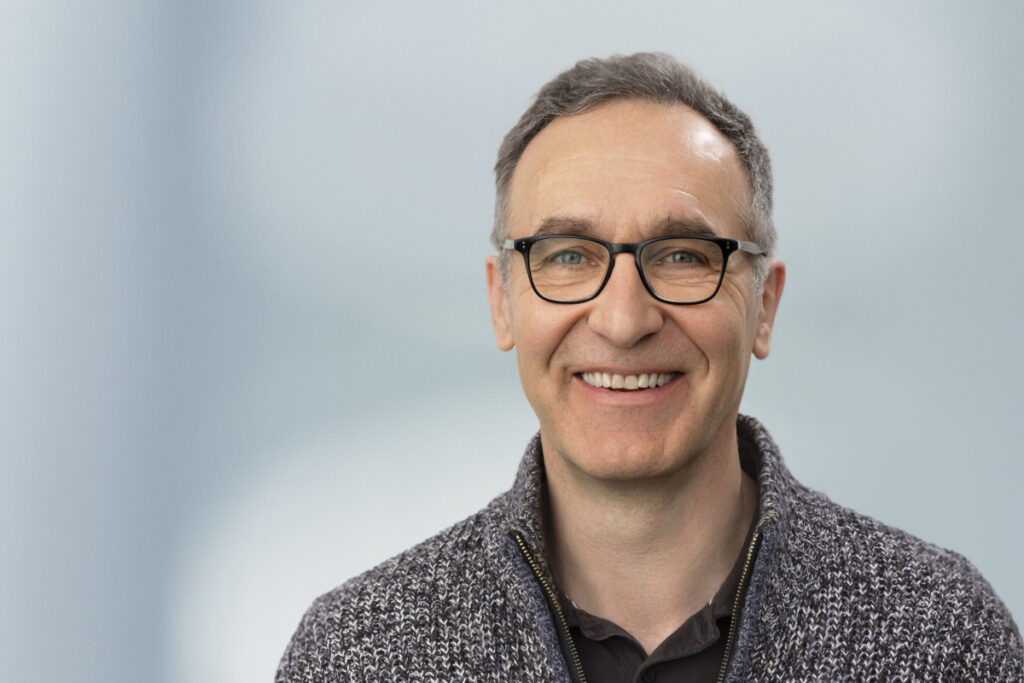
Prof. Dr. Jürgen Bauhus heads the Chair of Silviculture at the Faculty of Environment and Natural Resources. His research focuses on controlling the structure and dynamics of forests for the provision of ecosystem services, on the impact of silvicultural measures on the ecosystem, and on the adaptation of forests to global change. He received the ‘Scientific Achievement Award’ from the International Union of Forest Research Organizations (IUFRO) for his research. He is chair of the Scientific Advisory Board on Forest Policy at the Federal Ministry of Food and Agriculture.
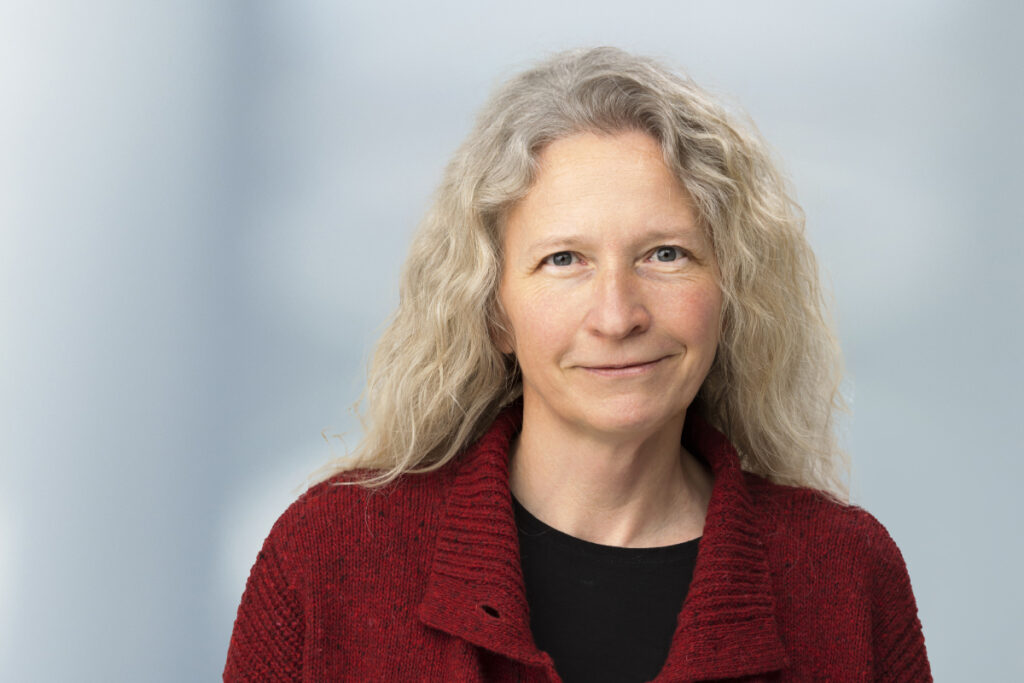
Prof. Dr. Friederike Lang heads the Chair of Soil Ecology, located at the Institute of Forest Sciences, Faculty of Environment and Natural Resources. Her research foci are the coupling of carbon and nutrient dynamics in forest soils, soil conservation (mechanized forestry), and the ecology of soil structure. Among other projects, she is currently conducting research on the quantification of ecosystem processes across scales by means of smart autonomous sensor networks in the Collaborative Research Centre ECOSENSE (SFB 1537) and serves as spokesperson of the Forest Floor (FOR 5315) research group. She is a member of the Soil Conservation Expert Panel at the German Environmental Agency and the Scientific Advisory Board on Forest Policy at the Federal Ministry of Food and Agriculture.
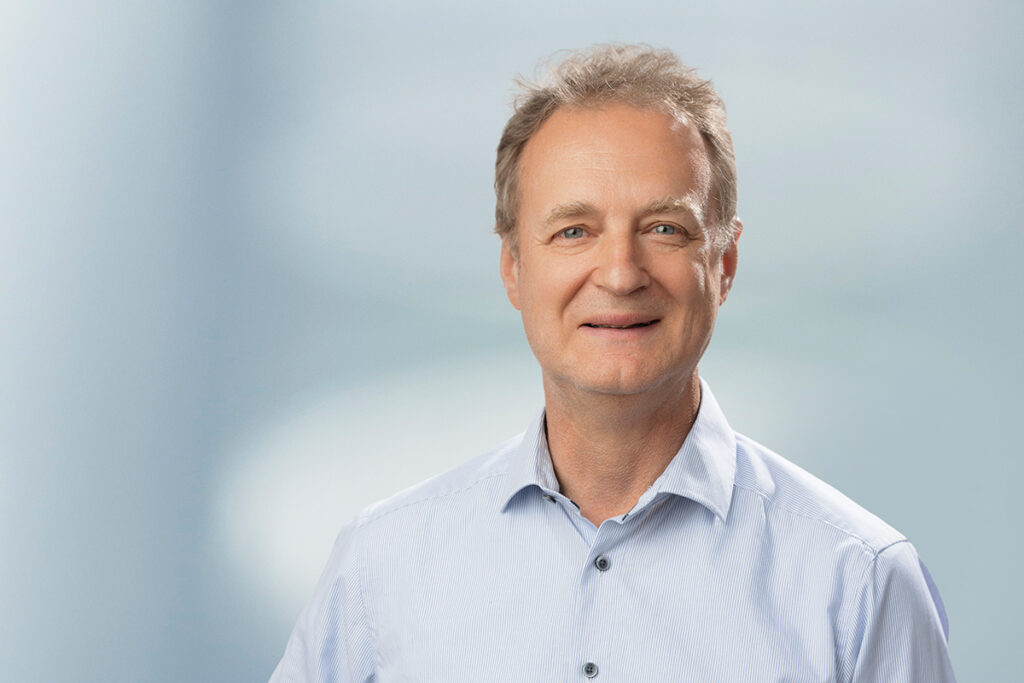
Prof. Dr. Marc Hanewinkel is Professor of Forest Economy and Forest Planning at the Institute of Forest Sciences, Faculty of Environment and Natural Resources. Among other things, he investigates the topics of risk analysis (risk identification, modelling, and assessment), impact of climate change on Europe’s forests, development of adaptive management strategies, economic analysis of climate changes, bioenergy, impact of changes in forest management strategies, and forest restructuring. A project he is currently working on in the ClimXtreme research network is ‘Module C: Impacts – Subproject 11: WIND – Winter Storm Impacts in Central Europe’. He is a member of the European network for forest sciences NFZ.forestnet.
Information on the University of Freiburg’s participation in the previous programme, the Excellence Initiative, is available here:
The German federal and state governments enacted the Excellence Initiative in June 2005 with the goal of consolidating Germany’s position as a center for research in the long term, enhancing its international competitiveness, and training future leaders for universities and research institutions. Organized as a competition among all German universities, the initiative consisted initially of the three funding lines Institutional Strategies, Clusters of Excellence, and Graduate Schools, for which a total of 4.6 billion euros was made available in the course of two funding periods (2005–2012, 2010–2017).
Initial concepts for possible Cluster of Excellence initiatives were reviewed last year. As a result, the university leadership asked seven initiatives to further develop their concepts in July 2022. All seven of these initiatives have now submitted draft proposals.
The university will submit renewal proposals for the two existing Clusters of Excellence, Centre for Integrative Biological Signalling Studies (CIBSS) and Living, Adaptive and Energy-autonomous Materials Systems (livMatS), in summer 2024.
As a whole, the seven Cluster of Excellence initiatives and the two Clusters of Excellence already receiving funding are a clear reflection of the university’s research profile and proven research strengths: All eleven faculties were participating in the highly interdisciplinary proposals.
All seven initiatives submitted draft proposals. Two of these were considered for a further round. The University of Freiburg is convinced of the quality of all draft proposals and will develop them further in other formats.
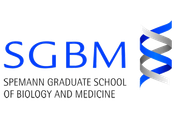
Spemann Graduate School of Biology and Medicine (SGBM)
The Spemann Graduate School of Biology and Medicine (SGBM) offers a dynamic interdisciplinary training program that prepares students for future scientific challenges. Its ultimate goal is to create a top notch “Life Scientist of the Future” who can assimilate knowledge and techniques from various disciplines as well as combine basic with translational research, biotechnology and drug development. Go to the SGMB Website

Centre for Biological Signalling Studies
Biological signalling processes are the key regulators of cellular activity in all types of cells in living organisms. The BIOSS – Centre for Biological Signalling Studies in Freiburg uses modern analytical methods and strategies of synthetic biology to study biological signalling processes in a creative and playful way. The main focus of research at BIOSS is to initiate and promote a dialectic process between scientists using analytical and synthetic approaches in signalling research. Go to the BIOSS Website

BrainLinks-BrainTools
BrainLinks-BrainTools unites life sciences, engineering, and clinical applications in Freiburg, thus anchoring neurotechnology as a research axis between three faculties of the University – Biology, Medicine, and Engineering – and various cooperation partners. These emerging opportunities for strong joint research and education between neuroscience and engineering deliver novel interdisciplinary results in an area highly relevant for society as a whole. Go to the BrainLinks-BrainTools Website
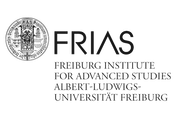
Freiburg Institute for Advanced Studies (FRIAS)
The Freiburg Institute for Advanced Studies (FRIAS) is the international research college of the University of Freiburg. As an integral part of the university, the Institute unites under its roof the humanities and social sciences, medicine, the natural and life sciences, and engineering. FRIAS offers leading academics as well as outstanding early-stage researchers from Freiburg and around the world the opportunity to concentrate exclusively on their individual or joint research projects for a certain period of time. It is in this way that the Institute creates a unique space and atmosphere for research within the university. Go to the FRIAS Website








